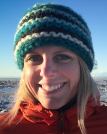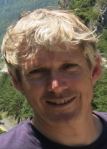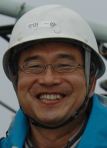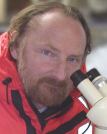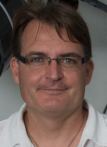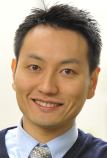
Speakers
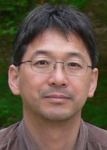
Integrated understanding of warming in the western North Pacific
Japan Sea National Fisheries Research Institute, Japan Fisheries Research and Education Agency, Japan
Tomowo Watanabe is the Director-General of Japan Sea National Fisheries Research Institute, Japan Fisheries Research and Education Agency, Japan. He received the Doctor of Science in the field of physical oceanography in 1990. His specialty is the study on long-term variation of marine environment in the western North Pacific including rescue of old data. Now he is concerned with warming of the Tsushima warm current system. On the other hand, he has contributed to the research on marine radioactivity since the Great East Japan Earthquake of March 11, 2011.
Science Board Symposium: Toward integrated understanding of ecosystem variability in the North Pacific
Kirstin Holsman NOAA Alaska Fisheries Research Center, Seattle, USA
Session 1 Invited Speaker
Dr. Kirstin Holsman is a Fishery Research Biologist with the US National Oceanic and Atmospheric Administration Alaska Fisheries Research Center. Her research is focused on the development of quantitative methods for ecosystem-based fisheries management and methods to assess and manage for climate change impacts on Arctic fish and fishing communities. This includes multiple collaborations to develop and implement climate-specific stock assessment models for Alaska (USA) fish species, Integrated Ecosystem Assessments, bioenergetics and food-web models, and field studies of climate and fishery effects on marine ecosystems. She is co-lead investigator on the Alaska Climate Integrated Modeling Project (ACLIM), a multidisciplinary collaboration to project climate change impacts on Bering Sea fish and fishing communities and evaluate the performance of alternative management strategies under future climate scenarios. She is a member of the international ICES/PICES Strategic Initiative on Climate Change Impacts on Marine Ecosystems (SICCME), Bering Sea lead of the NOAA Integrated Ecosystem Assessment program, and is an active member of multiple national and international writing teams focused on understanding climate change impacts on marine ecosystems.
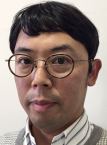
Michio Kondoh Tohoku University, Japan
Session 1 Invited Speaker
Dr. Kondoh is a professor at Tohoku University, Japan and the first president of The eDNA Society established in 2018. His research is focused primarily on constructing ecological theory that links the interspecific interactions, community dynamics and ecosystem functioning. He received his PhD in Biology from Kyoto University in 2001. After conducting research at Cardiff University (UK) and NIOO (the Netherlands) as a JSPS research fellow, he was offered a tenure position at Ryukoku University in 2004 and then offered a professor position at Tohoku University in 2018. He received several awards in ecology and mathematical biology, including Akira Okubo Prize of SMB/JSMB and Miyadi Award of ESJ. He is a member of the Ecological Society of Japan, the Japanese Society for Mathematical Biology, the Society for Population Ecology and the eDNA Society.
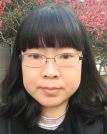
Xiujuan Shan Yellow Sea Fisheries Research Institute, CAFS, China
Session 1 Invited Speaker
Dr. Xiujuan Shan is a professor of Yellow Sea Fisheries Research Institute, Chinese Academy of Fishery Sciences, at the same time as the deputy-director of Key Laboratory for Sustainable Utilization of Marine Fishery Resources, Ministry of Agriculture. She got her Ph.D degree on marine biology from Chinese Academy of Sciences in 2008, and mainly focuses on fish stock assessment, fish biodiversity and the dynamics of marine ecosystem, particularly in the Bohai and Yellow Sea ecosystem; in recent years, she firstly started the projections of climate change on fisheries in China by the support of project from Ministry of Science and Technology, China, and as a leading author of fish chapter in China National Report on Climate Change. She is as the group leader of FISH STOCK task in UNDP/GEF project “Yellow Sea Large Marine Ecosystem”, also serves as the co-chair of PICES-WG36 “Common Ecosystem Reference Points across PICES Member Countries”.
Fish production through food web dynamics in the boundary current systems
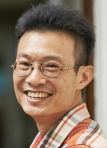
Chih-hao (Zac) Hsieh
Session 2 Invited Speaker
Chih-hao (Zac) Hsieh is a professor and the deputy director at the Institute of Oceanography, National Taiwan University. Zac received his Master degree from the Department of Zoology, National Taiwan University and Ph.D. degree from the Scripps Institution of Oceanography, University of California-San Diego. He is a theoretical ecologist as well as biological and fisheries oceanographer. His research targets range from microbes, plankton, to fish. His research integrates field observations, experiments, data analyses, and mathematical modeling. His research interests include forecasting dynamical systems, plankton food webs, and ecosystem-based approach to fisheries management.
Science communication for North Pacific marine science
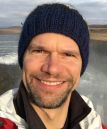
Alan Haynie Alaska Fisheries Science Center, National Marine Fisheries Service, USA
Session 3 Invited Speaker
Alan Haynie has been an economist at NOAA Fisheries’ Alaska Fisheries Science Center in Seattle since 2004. Alan’s research includes the spatial analysis of fisheries under changing climate, biological and market conditions, and management. Alan was a PI in the Bering Sea Integrated Ecosystem Research Program and works in various capacities to integrate economics & social sciences with biological sciences in marine resource management. Alan’s work also explores the design and implementation of bycatch reduction incentives, the evaluation of bycatch hotspot closures, and the identification of unintended consequences of marine reserves. Alan is a member of the Bering Sea and Aleutian Islands Groundfish Plan Team and oversees the spatial economics toolbox for fisheries (FishSET), a NOAA Fisheries initiative to improve the spatial modeling and management of fisheries.
Indicators for assessing and monitoring biodiversity of biogenic habitats
Yves-Marie Bozec The University of Queensland, Australia
Session 4 Invited Speaker
I am a marine ecologist with interests in the mechanisms controlling the dynamics, functioning and resilience of coral reef ecosystems.
My current research is looking at the resilience of the Great Barrier Reef to multiple stressors, including thermal stress, poor water quality, cyclone damages and outbreaks of the Crown-of-Thorns starfish. This work is based on the development of demographic models of corals to understand the processes that regulate their populations and to forecast their responses to multiple disturbance scenarios. A key focus of my research is the interactions between corals, macroalgae and herbivores and the maintenance of functional reef habitats under climate change.
More...
Seasonal to interannual variations of meso-/submeso-scale processes in the North Pacific

Yu-Lin Eda Chang Japan Agency for Marine-Earth Science and Technology (JAMSTEC)
Session 5 Invited Speaker
Dr. Yu-Lin Eda Chang is a scientist in Application Laboratory at Japan Agency for Marine-Earth Science and Technology, starts her work in Japan since August 2017. She received her Ph.D. from National Taiwan Normal University and worked as a faculty member in the same university from 2012 to 2017. She had worked at Princeton University as the senior scientist specialist from 2009-2011, and as a visiting scientist at Dalhousie University from 2015-2016. She is a physical oceanographer, and especially interests in mesoscale features and ocean circulation, such as the Kuroshio and Subtropical countercurrent eddies. In recent years, she is exploring the link between western Pacific Ocean currents and Japanese eel migration.
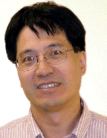
Bo Qiu Department of Oceanography, University of Hawaii at Manoa
Session 5 Invited Speaker
Bo Qiu is a Professor at the Department of Oceanography, University of Hawaii at Manoa. He received his B.Sc., M.Sc. and PhD degrees in Physical Oceanography from Kyoto University. His scientific interests include large-sacle ocean circulation variability, midlatitude air-sea interaction, geophysical fluid dynamics, and satellite oceanography. He has published more than 110 articles in peer-reviewed journals and was a contributing author to both IPCC 4th and 5th Assessment Reports. Prof. Qiu was a recipient of the Okada Prize from the Oceanographic Society of Japan, the New Investigators Award from NASA's Mission to Planet Earth Program, as well as the 2018 University of Hawaii Board of Regents' Medal for Excellence in Research. He currently serves as a member of the US Argo Implementation Panel, the International CLIVAR NPOCE Program Science Steering Committee, the Pacific Asian Marginal Seas (PAMS) Program Science Steering Committee, and the Tropical Pacific Observing System (TPOS) 2020 Western Pacific Task Team.
Ecological responses to variable climate changes and their applicability to ecosystem predictions

Susan Allen The University of British Columbia (UBC), Vancouver, Canada
Session 7 Invited Speaker
Susan Allen, Professor and Associate Dean at the University of British Columbia (UBC), is a physical oceanographer who uses models to understand, and predict coastal oceanographic processes and biogeochemical-physical interactions. Her longest standing obsession has been the flow over and around topography, particular submarine canyons. The goal is to be able to understand the rotationally dominated flow over topography and quantitatively estimate the
cross-bathymetric gradient flows and the scalar fluxes they generate. Since GLOBEC in 1997, Susan has done interdisciplinary research with biological and chemical oceanographers. She is modelling coordinator for the Canadian GEOTRACES project and one of two Theme Leads for
Canada's Marine Environment Observation, Prediction and Response (MEOPAR) Network of Excellence. Her group runs a three-dimensional coupled bio-physical model (soon to include carbon) daily and forecasts 36 hours into the future. With MEOPAR she has collaborated with social scientists and stakeholders and advanced open, accessible and reproducible science.
At UBC she teaches physical oceanography, atmospheric science and numerical techniques. 19 MSc and 8 PhD students have graduated under her supervision. She has received the President's Prize and the Saucier Applied Oceanography Prize from the Canadian Meteorological and Oceanographic Society.
Internal tides, nonlinear internal waves, and their impacts on biogeochemistry, climate and marine ecosystems via ocean turbulent mixing processes

Kristen Davis University of California, USA
Session 8 Invited Speaker
Kristen Davis is an Assistant Professor of Civil & Environmental Engineering at the University of California, Irvine. She is a physical oceanographer who is interested in studying mechanisms driving the transport and mixing of heat, nutrients, and planktonic organisms in coastal and estuarine systems and influences on coastal ecosystems. Kristen earned a Ph.D. in Civil & Environmental Engineering at Stanford University in 2009 and was a postdoctoral researcher at the Woods Hole Oceanographic Institution and the Applied Physics Laboratory at the University of Washington. Her recent research is focused on understanding nonlinear internal wave dynamics in the nearshore and physical processes creating environmental gradients in coastal ecosystems.
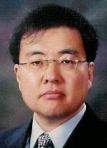
Yign Noh Yonsei University, Korea
Session 8 Invited Speaker
Yign Noh is currently a professor at Yonsei University, Korea. He received his B.S. (Oceanography), M.S. (physics) at SNU, and Ph.D. (GFD) at Johns Hopkins Univ. His main research interests are geophysical turbulence and its parameterization, mixing process in the ocean, and suspended particles in turbulent flows, and the main research tool is computer simulation, especially large eddy simulation (LES). His major achievements include the development of the LES model of the ocean mixed layer and the Lagrangian cloud model (LCM), in collaboration with U. Hannover, and its application to the investigation of ocean mixing and cloud microphysics. Recently he developed a Lagrangian plankton model, in which nutrient is treated as a passive scalar and phytoplanktons are represented by Lagrangian particles. He also developed the parameterizations of the ocean mixed layer and the PBL, both of which are now used widely in climate and NWP models.
Ichiro Yasuda The University of Tokyo, Japan
Session 8 Invited Speaker
Ichiro Yasuda is a professor in Department of Physical Oceanography of Atmosphere and Ocean Research Institute, University of Tokyo. His research interest is on the large-scale ocean circulation and its long-term variability, especially on the turbulence and mixing -driven ocean circulation and their impacts on climate, ecosystem and fisheries. He is now a chief PI of the project ‘Ocean mixing processes: impact on biogeochemistry, climate and ecosystem (OMIX)’.
Integration of science and policy for sustainable marine ecosystem services
Session 9 Invited Speaker
TBA
Ocean acidification and deoxygenation and their impact on ocean ecosystems: Synthesis and next steps

Christopher Harley Department of Zoology, University of British Columbia, Canada
Session 10 Invited Speaker
I study climate change impacts on rocky coasts. I’m interested in how climatic factors, such as temperature, CO2, and pH, and biological relationships, such as predation and facilitation, interact to create ecological patterns in time and space.
Ongoing Research Projects: "Temperature, carbon dioxide, and interspecific interactions", "The thermal ecology of a marine symbiosis", "Simulating global warming on rocky shores", "Darwin’s barnacle and the invasion of Argentina".
More....
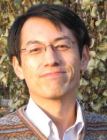
Shoshiro Minobe Faculty of Science, Hokkaido University, Japan
Session 10 Invited Speaker
Dr. Shoshiro Minobe is a Professor at the Graduate School of Sciences, Hokkaido University, Japan.
His research interests focus on decadal climate variability and air-sea interaction. Included in his publications is a widely-referenced article proposing 50-yr climate variability and an interpretation of climate regime shifts associated with 50-yr and 20-yr climate variability. His paper on the ocean-to-atmosphere influence over the Gulf Stream was featured as the cover article of the journal Nature in 2008. Shoshiro worked as a convenor for several PICES symposium and workshops for decadal climate variability and its relation to marine ecosystem, and as a guest editor of the Progress in Oceanography special issue on "North Pacific Climate Regime Shift" (2000). He also served as a member of the Implementation Plan Writing Team for the PICES scientific program, FUTURE.
He worked as a co-chair of PICES WG27 on "North Pacific Climate Variability and Change".
Influence of climate and environmental variability on pelagic and forage species
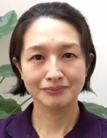
Haruka Nishikawa Japan Agency for Marine-Earth Science and Technology (JAMSTEC)
Session 11 Invited Speaker
I’m a Project Researcher at Japan Agency for Marine-Earth Science and Technology (JAMSTEC). I received my PhD in Earth and Planetary Science from the University of Tokyo. I have worked for the climatic and environmental change impacts on pelagic fish, for example, stock fluctuation of sardine and anchovy, and fishing grounds formation of squid. I especially focus on how fish survive, migrate, aggregate and change their stock level in the Northwestern Pacific where the physical and biological environment are inevitably under the influence of a complicated current system. My research methodologies include time series analyses of observation data, hydrodynamic model, lower ecosystem model and individual-based fish model.
Applying ecosystem considerations in science advice for managing highly migratory species

Yong Chen School of Marine Sciences, University of Maine, U.S.A.
Session 12 Invited Speaker
Yong Chen is a Professor of Fisheries Science in the School of Marine Sciences at the University of Maine in Orono, Maine, U.S.A. He received his Bachelor of Agriculture degree (1983) in fisheries science from the Ocean University of China and MS (1991) in Zoology (Fish Ecology) and PhD (1995) in Zoology (Fish Population Dynamics with a minor in statistics) degrees from the University of Toronto in Canada. He started his career as a fisheries stock assessment scientist in the New South Wales Fisheries Department in Sydney, Australia in 1995. In 1997, he was appointed Assistant Professor of Fisheries Population Dynamics at Memorial University of Newfoundland. He moved to the University of Maine in 2000 and was promoted to the rank of Full Professor in 2007. Dr. Chen’s research focuses primarily on fisheries population dynamics and stock assessment, monitoring program design and optimization, fisheries ecology, statistical modeling and computer simulations. Dr. Chen has authored and co-authored over 210 peer-reviewed papers in scientific journals, many technical and fish stock assessment reports, and has received millions of dollars in competitive research support for over 80 projects. Dr. Chen has adjunct faculty appointment at the Shanghai Ocean University and Ocean University of China. He is actively involved in community and professional service, including peer reviewer for scientific journals and funding agencies. He is currently a member of the United States New England Fisheries Management Council’s Scientific and Statistical Committee. He is Editor-in-Chief of the Canadian Journal of Fisheries and Aquatic Sciences and the Aquaculture and Fisheries. His lab webpage is located at https://www.umaine.edu/chenlab/
Ecological roles of gelatinous zooplankton: Evaluation, integration and future prospects in a more gelatinous ocean
Russell Hopcroft University of Alaska Fairbanks, USA
Workshop 1 Invited Speaker
Dr. Russell Hopcroft is a Professor at the University of Alaska’s Institute of Marine Science in Fairbanks. He grew up fascinated by aquatic life (and Jacques Cousteau specials), and pursued this fascination throughout his education. Dr. Hopcroft received his Masters degree in 1988, and his Ph.D. in 1997 from the University of Guelph, Ontario, Canada. He pursues a broad array of research interests, concentrating on the composition, production and energy flow of the planktonic trophic levels that ultimately shape the structure of all marine communities. Since joining UAF in 2000, his focus has shifted to Arctic and subarctic planktonic communities with emphasis on Alaskan waters. Much of his lab’s activity focuses on understanding the linkage between climate and zooplankton communities. In addition to traditional emphasis on crustaceans zooplankton (copepods and euphausiids), he also works on the broad array of soft-bodied zooplankton groups such as jellyfish, the larvacean pelagic tunicates, and most pelagic snails (pteropods and heteropods).
Dhugal Lindsay Japan Agency for Marine-Earth Science and Technology (JAMSTEC)
Workshop 1 Invited Speaker
Dhugal Lindsay is a Senior Staff Scientist at the Japan Agency for Marine-Earth Science & Technology (JAMSTEC) and holds adjunct professorships at Yokohama Municipal University and Kitasato University. He received his Ph.D. in aquatic biology from the University of Tokyo. Dr. Lindsay's research focuses on mid-water ecology, particularly concentrating on gelatinous organisms that are too fragile to be sampled by conventional methods. He has used conventional sampling techniques such as nets and sediment traps and towed camera arrays, and has also used both manned submersibles and remotely-operated vehicles to investigate fauna from depths as shallow as the euphotic layer to as deep as the Challenger Deep, Mariana Trench, in environments ranging from both poles to tropical areas in South-East Asia. He currently heads the Technology working group of the Deep Ocean Stewardship Initiative (DOSI) and has also served on the National Academies of Science (U.S.), Ocean Studies Board, Committee on Future Needs in Deep Submergence Science and the Steering Committee of the Census of Marine Zooplankton (Census of Marine Life: CoML).
PICES contribution to Central Arctic Ocean (CAO) ecosystem assessment (Second)
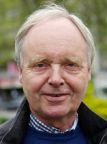
Hein Rune Skjoldal Institue of Marine Research, Norway
Workshop 2 Invited Speaker
Hein Rune Skjoldal is a marine biologist and ecologist at the Institute of Marine Research in Norway. He has a long-standing interest in ecosystems and the ecosystem approach to management. Hein Rune has studied the Barents Sea and Norwegian Sea ecosystems (he was editor of the book ‘The Norwegian Sea ecosystem’ in 2004). For the last 15 years, he has been involved in descriptions of Arctic Large Marine Ecosystems (LMEs) and environmental assessments such as AMAP Assessment of Oil and Gas Activities in the Arctic (2007-2010) and PAME Arctic Marine Shipping Assessment (AMSA 2009). He is currently co-lead of a joint Ecosystem Approach Expert Group under the Arctic Council, and co-chair of the ICES/PICES/PAME Working Group on Integrated Ecosystem Assessment of the Central Arctic Ocean.
Development of a systematic approach to data management in PICES
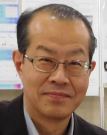
Yutaka Michida Atmosphere and Ocean Research Institute, The University of Tokyo, Japan
Workshop 3 Invited Speaker
Prof. Yutaka Michida is a Vice Director of Atmosphere and Ocean Research Institute of the University of Tokyo. He obtained his PhD in Geophysics from the University of Tokyo (U. Tokyo) in 1999. After finishing his master course study at the University of Tokyo in 1984, he joined the Hydrographic Department of Japan Coast Guard (JCG) and started his professional career as a technical/research officer of JCG. During his service at JCG, he served as the deputy director of Japan Oceanographic Data Center in 1997-99. He moved to the Ocean Research Institute (currently Atmosphere and Ocean Research Institute) of U. Tokyo in 2000, and has been a professor of the Institute since 2007. His major fields cover physical oceanography with particular interests in current structure and its variability in the surface layer, and oceanographic data management. He has long experiences in international programmes of oceanography, particularly those led by the Intergovernmental Oceanographic Commission of UNESCO (IOC), including WOCE (World Ocean Circulation Experiment), IODE (International Oceanographic Data and Information Exchange), WESTPAC (IOC Sub-Commission for the Western Pacific), and other. He was one of the vice-chairs of IOC from 2011 to 2015, and has currently been a co-Chair of IODE since 2015.
Synthesizing projected climate change impacts in the North Pacific
William Cheung The University of British Columbia (UBC), Vancouver, Canada
Workshop 4 Invited Speaker
William Cheung is Associate Professor in the Institute for the Oceans and Fisheries at the University of British Columbia, and Director (Science) of the Nippon Foundation-UBC Nereus Program. He is an internationally-recognized expert in the effects of climate change on marine ecosystems and fisheries, and is a lead author for the Fifth Assessment of the Intergovernmental Panel on Climate Change (IPCC) and coordinating lead author for the IPCC Special Report on the Ocean and Cryosphere in the Changing Climate. Cheung has published over 100 peer-reviewed articles, many in impactful journals such as Nature, Science, and PNAS, and is the 2017 laureate of the Prix’d Excellence Award of the International Council for the Exploration of the Seas for his contributions to marine sciences.
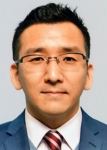
Taketo Hashioka Japan Agency for Marine-Earth Science and Technology (JAMSTEC)
Workshop 4 Invited Speaker
My research interest is understanding of the dynamics of ecosystem changes associated with climate changes including global warming. In particular, I focus on the changes on phenology and community structure of lower trophic level ecosystem and its impact on biogeochemical cycles using ecosystem models based on PICES NEMURO. Future projections in the western North Pacific were contributed to IPCC AR5 WGII (Hashioka et al., 2007, 2009). From 2011, I joined a MARine Ecosystem Model Intercomparison Project (MAREMIP, SSC member from 2013), and have been done the evaluation of difference in current ecosystem models (PFT, Plankton Functional Type, models) in the global scale, and future projection as multi-model ensemble.
Identifying common reference points and leading indicators of ecosystem change
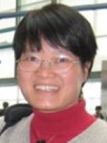
Caihong Fu DFO, Canada
Workshop 5 Invited Speaker
Dr. Caihong Fu is a Research Scientist at Fisheries and Oceans Canada (DFO) – Pacific Biological Station. She received her PhD in Fisheries from the University of Alaska Fairbanks. Caihong’s research in earlier years was in quantitative fish population dynamics and stock assessment. Since 2008, her research has been focusing on marine ecosystem modeling, through which she hopes to achieve better understanding of how climate change, species interactions, and fishing affect the dynamics of fish populations and ecosystems and how fish populations should be managed under changing climate and ecological conditions. Caihong is a member of PICES WG-40: Climate and Ecosystem Predictability.
Regional evaluation of secondary production observations and application of methodology in the North Pacific
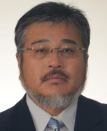
Koichi Ara College of Bioresource Sciences, Nihon University, Japan
Workshop 6 Invited Speaker
Koichi Ara is a Professor at the Department of Marine Science and Resources, College of Bioresource Sciences, Nihon University. He received his PhD (Doctor of Science) Degree in biological oceanography from the Institute Oceanográfico, Universidade de São Paulo, Brazil. For the last ca. 20 years, his research has been focused on the marine ecosystem processes such as the plankton food web structure and trophodynamics of lower trophic levels in terms of carbon flow, from phytoplankton primary production to secondary and tertiary production, based on abundance, biomass, production rate and food requirement of the planktonic organisms (pico-, nano-, micro- and mesozooplankton) in the neritic area of Sagami Bay, Japan.
Diets, consumption, and abundance of marine birds and mammals in the North Pacific
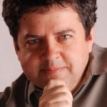
Andrew Trites The University of British Columbia (UBC), Vancouver, Canada
Workshop 7 Invited Speaker
Dr. Trites oversees the Marine Mammal Research Unit and a research program that involves captive and field studies of seals, sea lions, whales and dolphins. His research is primarily focused on pinnipeds (Steller sea lions, northern fur seals, and harbor seals) and involves captive studies, field studies and simulation models that range from single species to whole ecosystems. His research spans the fields of ecology, nutrition, physiology, and animal behavior. It is also designed to further the conservation and understanding of marine mammals, and resolve conflicts between people and marine mammals. The research program includes researchers, students, technicians, and support staff. The training of students, and the collaboration between researchers specializing in other disciplines (such as nutrition, ecology, physiology and oceanography) is central to the success of his research program.
